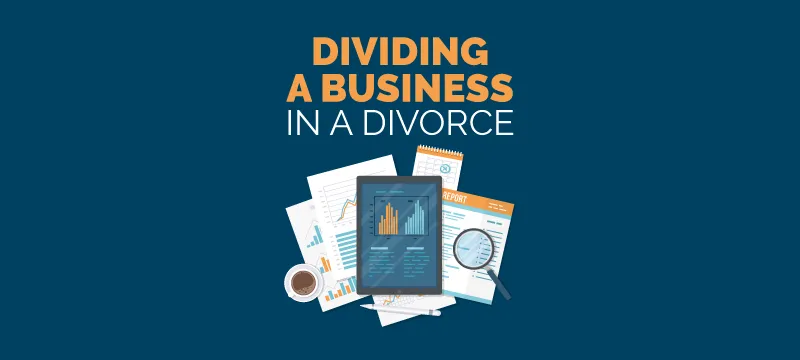Divorce is never an easy process when it involves dividing assets, finances, and especially businesses. For couples in California, the challenges of dividing a business during a divorce can be particularly complex due to the state’s unique laws and regulations. However, with careful planning and professional guidance, you can successfully navigate this journey while preserving your financial interests. We’re exploring essential steps and considerations for dividing a business during a divorce in the Golden State.
California’s Community Property Laws
In California, marital property, including businesses acquired during the marriage, is typically considered community property. This means that, in the absence of a prenuptial agreement or other legal agreements, both spouses have equal ownership rights to the business and its assets. Understanding this foundational principle is crucial before proceeding. No matter the complexity of the divorce case, resolution can be achieved with mediation attorney Scott Levin who helps couples negotiate settlements, even for highly complex divorces.
Valuation of the Business
Before any division can occur, you must determine the value of the business. Hiring a professional business appraiser is essential in this regard. They will assess the company’s assets, income, debts, and potential for future growth. Accurate valuation is the cornerstone of any equitable division.
Negotiate a Settlement
Once the business’s value is established, it’s time to negotiate terms for the settlement. It’s ideal to approach this process with a collaborative mindset in order to avoid a prolonged legal battle which can impact operation of a business in a unique way. When a business is subject to litigation and the owners are stuck in a fight, it is more than possible that it receives less care during this time.
Buyout or Co-Ownership
There are generally two options for dividing a business: a buyout or co-ownership. If one spouse wishes to retain the business, they can offer value to the other spouse. Whether that is payment of money upfront or over time, or exchanging the business for another community asset, creative options can be explored. Alternatively, the former spouses can choose to continue co-owning the business, although this can pose unique challenges. Continued joint operation of a business ideally will involve a business attorney to help set forth clear and well-structured partnership terms.
Protect the Business’s Future
Divorce can be disruptive to a business’s operations and stability. To safeguard the company’s future, it’s essential to address key issues, such as management roles, financial responsibilities, and decision-making processes, in a post-divorce context. Crafting a comprehensive agreement that outlines these details is highly recommended.
Tax Implications
Be aware of potential tax implications associated with division of a business during a divorce. Consulting with an accountant or other tax professionals is needed to make informed decisions.
Marital Agreement Clearly Sets Forth Business Division
Drafting the terms of a Marital Settlement Agreement with regard to dividing a business in a California divorce requires the knowledge and skill of a family law attorney like Scott Levin, who specializes in high-asset divorces.
Divorce is undoubtedly a challenging chapter in anyone’s life, and dividing a business during this process can make it even more complex. However, by understanding California’s community property laws, valuing the business accurately, negotiating fairly, and seeking professional assistance, you can navigate this difficult terrain with confidence and come out the other side with your financial future intact. Remember that, with the right approach and mindset, you can turn this challenging situation into an opportunity for a fresh start.

Begin the low-stress process with 5-Star rated Divorce Mediation Expert, Scott F. Levin, Esq, at San Diego Divorce Mediation. You’ll have access to flexible options, including virtual meetings. Reach out today to schedule a free consultation and see the difference mediation can make. By choosing mediation, you can save time, money, and emotional stress, while maintaining control over the outcome of your divorce.











